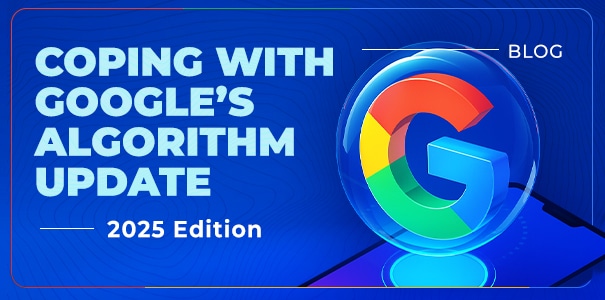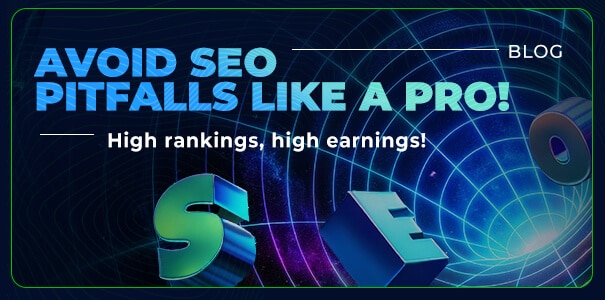Last year, Google's March 2024 Core Update combated low-quality content and rolled out new spam policies to crack down on manipulative practices.
The 2025 Core Update concerns Enhanced E-E-A-T, AI-generated content scrutiny, user behavior signals, and technical performance.
To all affiliate marketers, this is your go-to blog post to ensure extra care with your website following the algorithm updates! ✔️
Let’s go back in time and then dive together into more details:
Overview of the March 2024 Core Update
The Google Helpful Content Update is now part of the core algorithm update, resulting in a 45% reduction in unhelpful content in search results. Following the March 5th update, many websites, including affiliate sites, experienced a drop in rankings or were deindexed by Google due to quality issues.
Google's March 2024 Core Update introduces algorithm changes to enhance search result quality and new spam policies targeting scaled content abuse, site reputation abuse, and expired domain abuse.
Understanding the core algorithm and learning how to adapt to these changes will benefit all affiliates.
March 2024 Update Recap

In March 2024, Google fully integrated its helpful content system into core updates, marking a pivotal shift in how affiliate content is ranked. This means Google will no longer announce separate helpful content updates, and instead, all future adjustments fall under the core algorithm umbrella.
This change demands a sharper focus on content value and user experience for affiliates. If rankings dip, Google advises not to panic. There’s no quick fix. Instead, evaluate your content for authenticity, relevance, and helpfulness, and await the next core update for potential recovery. Key new spam policies also came into effect.
First, scaled content abuse now includes any method (automated, human, or hybrid) used to mass-produce low-value content to game rankings. Google’s upgraded spam filters are designed to spot and demote content that appears helpful but fails to deliver real value. Second, expired domain abuse is officially labeled as spam.
Affiliates repurposing expired domains to push poor-quality content for quick SEO wins are violating Google’s terms. Third, “Parasite SEO,” or site reputation abuse, targets third-party content hosted on reputable sites to exploit their authority. If content lacks proper oversight or is designed to rank, it’s now classified as spam.
These policies took full effect in July 2024, with both automated and manual actions expected. To succeed in this new landscape, affiliates should shift focus toward authentic, user-first content strategies. High-quality review articles based on real experience, step-by-step how-to guides, and transparent comparison pages play a crucial role. Specific offer pages should feel personal and helpful, not like hard sells.
Viral content must be SEO-savvy and strategically targeted within the marketing funnel. Lastly, choosing affiliate programs that align with your audience’s needs, not just high commission rates, is vital. Whether you're crafting awareness-stage videos or conversion-focused product guides, user trust and transparency are your top assets. As Google's algorithms grow smarter, playing the long game with quality, trust-based content is no longer optional: it’s essential.
Key Changes in the March 2025 Core Update
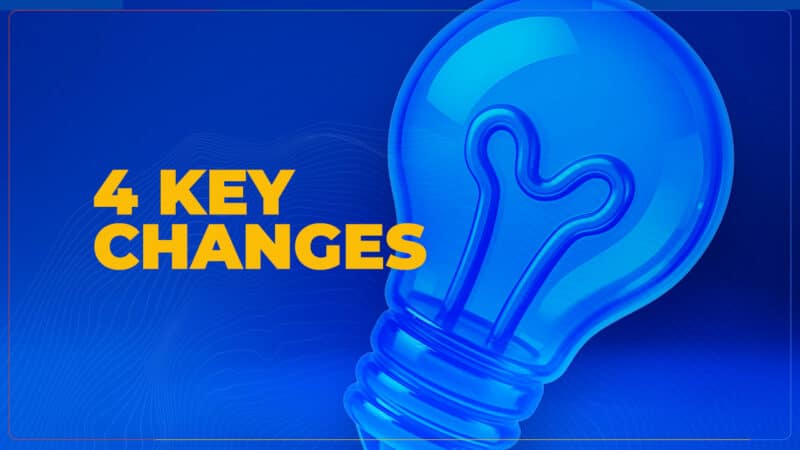
Enhanced E-E-A-T (Experience, Expertise, Authoritativeness, Trustworthiness): Google has intensified its focus on E-E-A-T, particularly emphasizing the "Experience" component. Content created by individuals with firsthand, verifiable experience in their subject matter is now prioritized. This shift is especially significant for YMYL (Your Money, Your Life) topics, such as finance and health, where demonstrating real-world expertise is crucial.
AI-Generated Content Scrutiny: The update brings stricter evaluation of AI-generated content. Pages that rely heavily on low-effort, mass-produced AI content without substantial human oversight or unique insights are being deprioritized. Google now favors content that combines AI efficiency with human expertise, ensuring originality and value for users.
User Behavior Signals: User engagement metrics, such as dwell time, bounce rate, and click-through rates, have gained increased importance. This change underscores Google's commitment to rewarding content that genuinely engages users, encouraging creators to focus on producing valuable and relevant material that meets user intent.
Technical Performance: Technical aspects of websites continue to play a vital role in search rankings. Core Web Vitals remain critical, with a heightened emphasis on mobile-first indexing and accessibility. Websites that offer fast loading times, responsive design, and accessible content are more likely to achieve higher rankings, reflecting Google's dedication to enhancing user experience across all devices.
What Are the New Core Algorithm Rules That Affiliates Should Be Aware of
The 2025 Core Update has intensified the challenges for affiliate marketers, raising the bar across content, credibility, and user experience. Here’s what affiliate sites are facing:
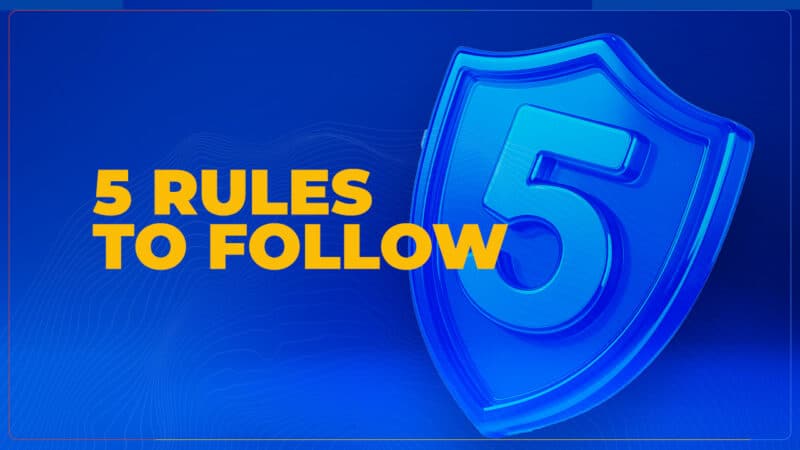
Content Quality Pressure
Google's renewed focus on Experience and Originality under E-E-A-T means that thin, templated “best product” listicles are no longer competitive. Pages lacking in-depth insights, hands-on testing, or unique commentary are being buried in favor of genuinely helpful content that demonstrates real-world expertise.
Affiliate marketers must now invest in content that mirrors personal experience, detailed comparisons, and problem-solving utility.
Link Value Dilution
Gone are the days when link quantity and keyword-rich anchor text could propel a page upward. The algorithm now penalizes over-optimized or unnatural link profiles, reducing the power of spammy backlinks and forcing marketers to build genuine, high-trust relationships for link equity.
A cleaner backlink strategy is essential: favor fewer but more relevant, organic links.
Competition from Big Players
Massive publishers and ecommerce giants dominate the affiliate space, especially for high-volume, generic keywords. Their content teams, domain authority, and brand trust allow them to rank above smaller players, even with similar content.
The solution? Target niche-specific, long-tail keywords and build brand identity within specialized verticals.
Adapting to AI Scrutiny
While AI-assisted content remains permissible, Google’s systems are now fine-tuned to detect low-effort or generic AI outputs. If your content feels soulless, repetitive, or lacks human nuance, it will struggle to rank.
Use AI as a tool, not a shortcut. Blend automation with real-world input, original visuals, and expert annotations.
Balancing Monetization and UX
Affiliate sites overloaded with ads, pop-ups, or CTA-heavy design experience a sharp decline in user engagement metrics like bounce rate and dwell time, which directly impact rankings.
Prioritize a clean user experience: clear navigation, honest reviews, moderate link use, and fast, mobile-optimized layouts.
Affiliate marketers in 2025 must pivot from traditional SEO hacks to value-first, trust-building strategies. The winners will be those who serve users before search engines and deliver a real reason to click, stay, and convert.
How Affiliate Marketers Can Adapt to Google’s 2025 Core Algorithm Standards
The 2025 Core Update reinforced Google's direction toward rewarding meaningful, transparent, and user-centric content. For affiliate marketers, adapting isn’t just about avoiding penalties; it’s about future-proofing your site and thriving in a more competitive, AI-aware ecosystem.
Here are the top strategies affiliate marketers should adopt now:
1) Prioritize High-Quality, Experience-Driven Content
In 2025, content must do more than inform. It needs to connect, guide, and engage. Pages created solely to rank with generic overviews or AI-written summaries will struggle to gain traction.
To enrich user value, focus on original research, personal product experiences, expert commentary, and multimedia formats (videos, data visualizations, etc.).
2) Enhance User Experience (UX) and Site Performance
Google’s increasing emphasis on behavioral signals like bounce rate, time on site, and return visits means UX is now tightly linked to rankings.
Key focus areas:
- Fast page load times
- Mobile-first design
- Minimal intrusive ads
- Accessible navigation and readability
A seamless, satisfying browsing experience now directly contributes to algorithmic success.
3) Strengthen E-E-A-T Signals
With a spotlight on trust and authenticity, affiliate content must show clear signs of:
- Real authorship and credentials (bio pages, expertise disclosures)
- Authoritative sourcing (citations to reputable sites or studies)
- Trust-building elements (privacy policies, customer reviews, editorial integrity)
This is especially vital for YMYL niches, where Google scrutinizes accuracy and trustworthiness.
4) Conduct Regular Content Audits and Refreshes
Stale, outdated content can drag down your site’s authority. In 2025, ongoing optimization is key.
Update product reviews, pricing details, affiliate links, and visual assets regularly. Remove underperforming or irrelevant content that no longer serves your audience.
5) Diversify Traffic Beyond Google
Relying exclusively on organic search is risky in a volatile SEO climate. Build resilience by tapping into:
- Social media channels (YouTube, Instagram, Reddit)
- Email marketing and newsletters
- Direct traffic via community engagement, brand recall, or partnerships
Affiliate success in 2025 demands multi-channel visibility and a loyal audience beyond just Google.
By shifting your mindset from ranking tricks to audience-first strategies, you'll not only align with Google's evolving standards but also build a stronger, more sustainable affiliate business in the long term.
Tips for Creating Profitable Affiliate Marketing Content That Ranks in 2025
With Google’s algorithm smarter than ever (and users more discerning) creating content that ranks and converts requires a strategic blend of originality, optimization, and trust. Here’s how to do it right in 2025:
Use AI Strategically to Enhance, Not Replace
AI can be a powerful assistant, but not a substitute for human insight. Use AI tools to:
- Analyze industry trends and data
- Surface content gaps
- Generate content outlines or summaries
- Monitor competitor movements
Then add your human layer: firsthand experience, storytelling, and actionable recommendations.
AI-assisted content must feel authentic and insightful, not templated or generic.
Build Sustainable, High-Trust Backlinks
Forget spammy link-building schemes. In 2025, backlinks only help if they’re:
- From topical and trustworthy domains
- Earned through collaborations, guest content, or citations
- Anchored naturally in relevant contexts
Focus on content worth linking to like in-depth guides, tools, or original research.
Prioritize Technical SEO and Accessibility
No matter how great your content is, poor performance will hold it back. Ensure your site excels in:
- Core Web Vitals: fast load times, interactivity, stability
- Mobile-first indexing: responsive, thumb-friendly design
- Accessibility: alt text, keyboard navigation, screen-reader compatibility
- Crawlability: clear URL structures, internal linking, up-to-date sitemaps
Combine technical audits with UX insights to strengthen your SEO foundation.
Diversify Your Traffic Sources
Google is just one part of the equation. To future-proof your affiliate funnel:
- Build an email list and segment audiences based on interests
- Repurpose blog content into video, carousel, or podcast formats
- Use SEO-driven YouTube reviews or TikTok how-tos
- Explore Reddit, Pinterest, or Quora for niche authority
Spreading your visibility means fewer risks from sudden algorithm shifts.
Focus on Intent-Matched, Solution-Oriented Content
Whether you're writing reviews, comparisons, or how-to articles:
- Lead with use-case clarity: why does this product matter?
- Structure for scannability: headings, bullet points, visuals
- Use real experience and specific outcomes in your narratives
Google’s AI evaluates how well your content satisfies the user’s intent so make sure your pages deliver answers, not fluff.
Optimize for Every Stage of the Funnel
Don’t just chase conversion-intent (bottom funnel) keywords. Develop content across the journey:
- Awareness: "What is X?" “Top 5 tools for Y”
- Consideration: "X vs Y" “Is X worth it in 2025?”
- Conversion: “Best deals for X” “Where to buy X”
This full-funnel approach builds trust and nurtures long-term engagement.
By combining tech-savvy tools with audience-first principles, affiliate marketers in 2025 can craft content that ranks, resonates, converts, and scales.
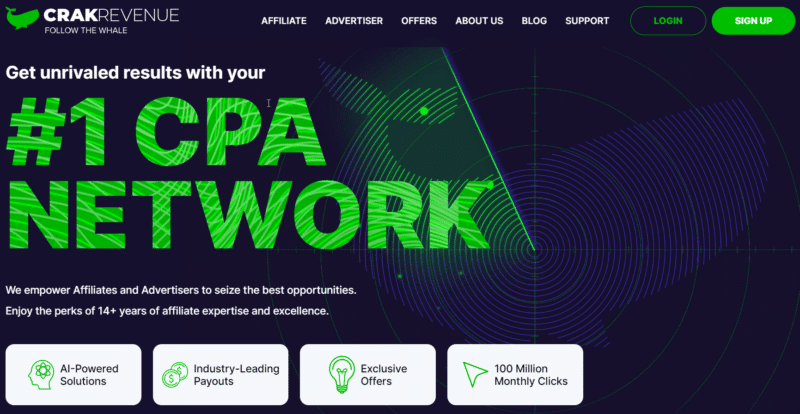
In conclusion, while Google's algorithm updates can be challenging, they also present opportunities for growth. By comprehending the purpose of these changes and adjusting our SEO strategies, we can establish a more resilient and successful online presence.
Stay well-informed, embrace innovation, and prioritize your audience's needs. With these principles, future algorithm updates can be approached with confidence, helping you ascend to the top of the search rankings.

